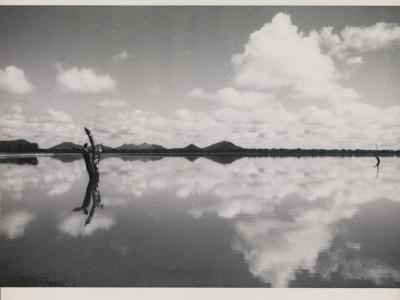
An IASH Work-in-Progress seminar, delivered by Dr Edwin Coomasaru (Postdoctoral Fellow 2022; British Art Studies)
Queer Ecologies and Anti-Colonial Abundance in Lionel Wendt’s Ceylon (1950)
Queer Sri Lankan photographer Lionel Wendt (1900-44) took surrealist photographs depicting island life from 1933-44, in the decades before Sri Lanka’s (formerly Ceylon) independence from the British Empire in 1948. Wendt’s work proclaimed an eco-queer politics, presenting abundant images of male nudes and environmental ritual landscapes in a challenge to the logic of scarcity imposed by colonialism. British rule in Sri Lanka (1796-1948) outlawed homosexuality as being ‘against the order of nature’ and destroyed common land, creating mass tea and coffee plantations to extract wealth back to the UK. Wendt collaborated with queer, anti-imperialist British filmmaker Basil Wright on his 1934 documentary Song of Ceylon. Exhibited internationally during his lifetime, Wendt’s photographs were published posthumously in the 1950 book Ceylon. This seminar will explore connections between anti-colonial art, queer politics, and environmental thinking in Wendt’s practice. Ceylon’s modernist photomontages contributed to a larger national consciousness, picturing speculative and imaginative dream-like worlds.
Please note that this talk will be online-only. Please click the link below to join the webinar:
https://ed-ac-uk.zoom.us/j/86535202023
Passcode: Vr8f3ew2
Image courtesy of Tate (Creative Commons CC-BY-NC-ND (3.0 Unported)): Lionel Wendt, Untitled, c.1933-38, gelatin silver print photograph on paper, 214×304mm, Tate.
